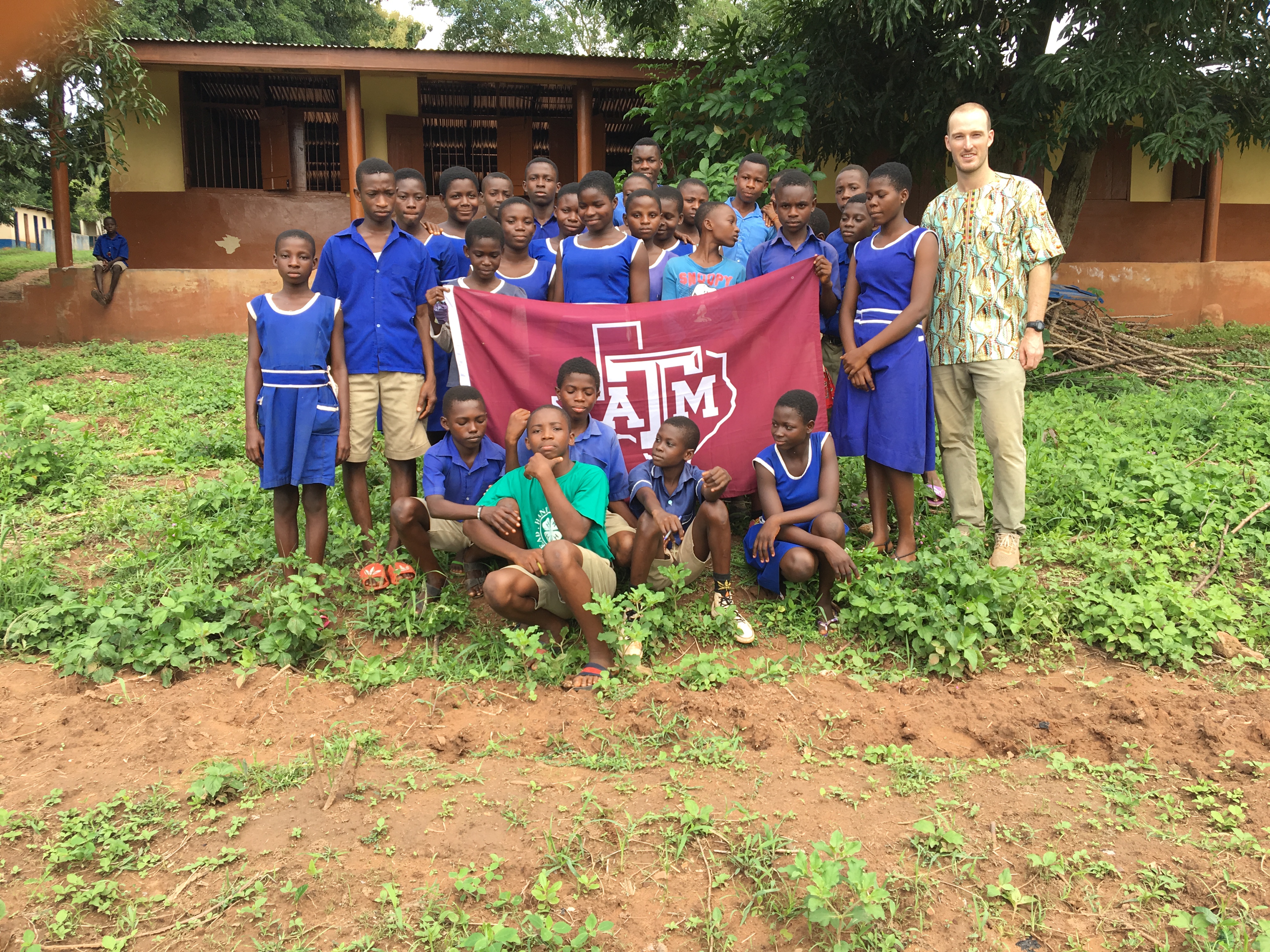Returned AgriCorps Fellow: Ryan Tomlin
Class: 4 (2017-2018)
Placement: Mensah Dawa, Eastern Region, Ghana
What are you up to now? Tell us about your day-to-day duties.
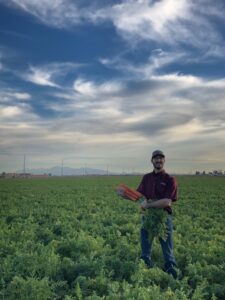
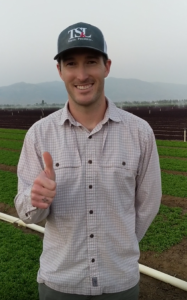 I am the IPM Supervisor and a PCA (Pest Control Advisor) for Duncan Family Farms, based in Goodyear, Arizona. Between our winter and summer farms, we grow 8,000 acres of organic baby leaf lettuce, spinach, arugula, and few other leafy greens along with a few specialty vegetables such as badger flamer beets. Integrated Pest Management (IPM) is defined as the coordinated use of pest and environmental information along with available pest control methods, including cultural, biological, genetic and chemical methods, to prevent unacceptable levels of pest damage by the most economical means and with the least possible hazard to people, property, and the environment.
I am the IPM Supervisor and a PCA (Pest Control Advisor) for Duncan Family Farms, based in Goodyear, Arizona. Between our winter and summer farms, we grow 8,000 acres of organic baby leaf lettuce, spinach, arugula, and few other leafy greens along with a few specialty vegetables such as badger flamer beets. Integrated Pest Management (IPM) is defined as the coordinated use of pest and environmental information along with available pest control methods, including cultural, biological, genetic and chemical methods, to prevent unacceptable levels of pest damage by the most economical means and with the least possible hazard to people, property, and the environment.
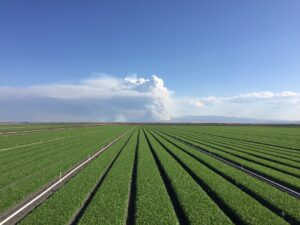 My days consist of scouting fields for pest pressure and nutrient deficiencies then subsequently developing a chemical and fertilizer solution to counter any issues. I manage three crews across our various farm locations that execute our IPM program and complete the recommended sprays. Scouting fields regularly allows us to accurately consider cultural, biological, and lastly chemical controls for pests when certain thresholds are surpassed. An example of using biological control for IPM, I sometimes use assassin bugs, which are beneficial insects, to control populations of pests such as thrip and flea beetle and keep their populations at a level below the economic threshold. The economic threshold is defined as the pest level when action should be applied to prevent pests from reaching injurious levels. However, when pest populations approach the economic injury level, chemical controls are implemented. The chemicals we use are organic compounds that naturally occur in the environment. For example, Spinosad is an insecticidal compound that is found in the bacterial species Saccharopolyspora spinosad. An organic, chemical can also be something as simple as thyme oil.
My days consist of scouting fields for pest pressure and nutrient deficiencies then subsequently developing a chemical and fertilizer solution to counter any issues. I manage three crews across our various farm locations that execute our IPM program and complete the recommended sprays. Scouting fields regularly allows us to accurately consider cultural, biological, and lastly chemical controls for pests when certain thresholds are surpassed. An example of using biological control for IPM, I sometimes use assassin bugs, which are beneficial insects, to control populations of pests such as thrip and flea beetle and keep their populations at a level below the economic threshold. The economic threshold is defined as the pest level when action should be applied to prevent pests from reaching injurious levels. However, when pest populations approach the economic injury level, chemical controls are implemented. The chemicals we use are organic compounds that naturally occur in the environment. For example, Spinosad is an insecticidal compound that is found in the bacterial species Saccharopolyspora spinosad. An organic, chemical can also be something as simple as thyme oil.
During the winter, I am home in Arizona, but as the temperatures begin the rise in the spring, we rotate to New Cuyama, California before moving to the Klamath Basin in southern Oregon. Each location has its own challenges so I move with the seasons to thoroughly understand how the environment impacts our crops. If you purchase an organic baby leaf salad at the store it likely has our product in it. I take great pride in being a part of a company that helps feed America healthy, life-giving food.
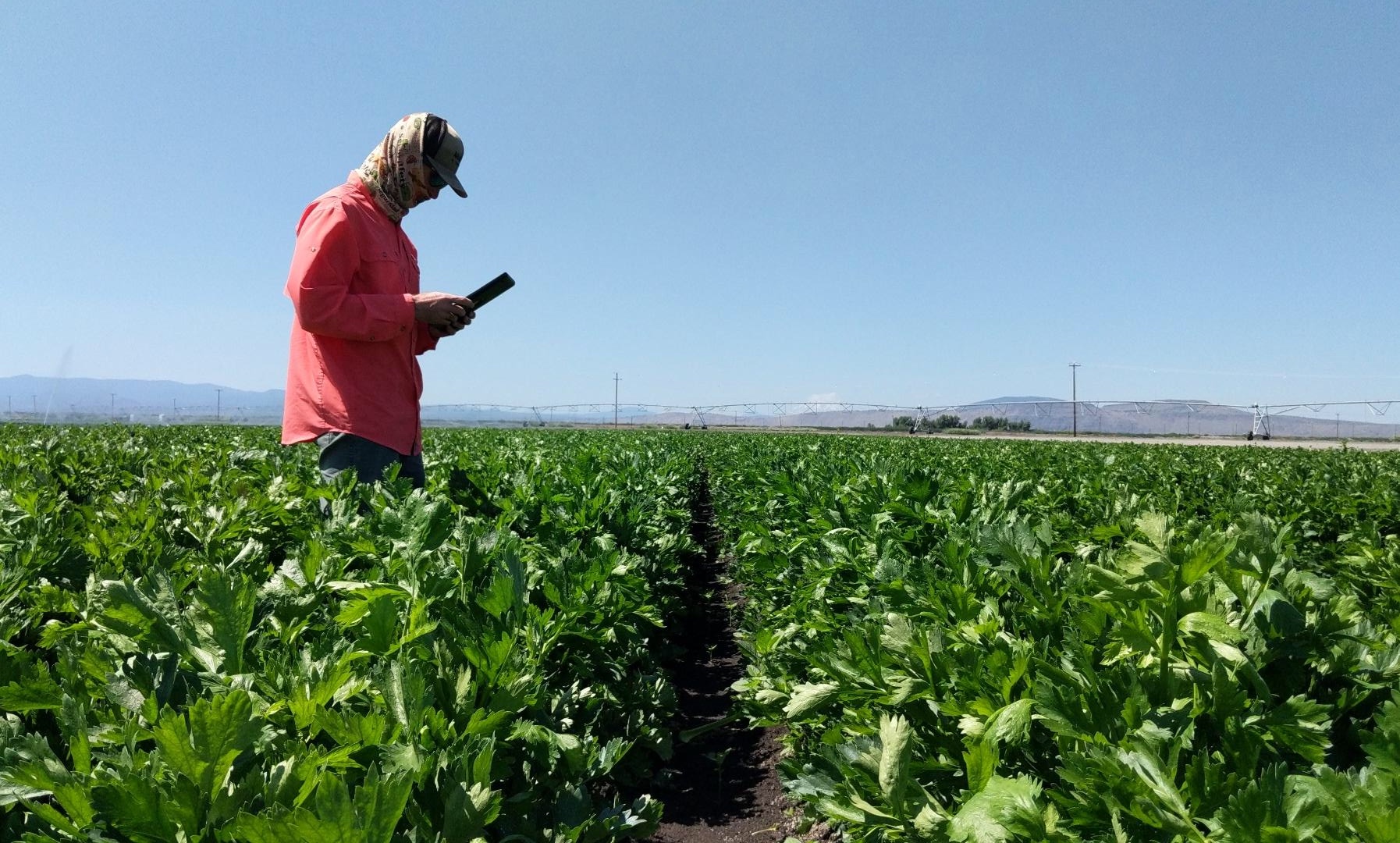
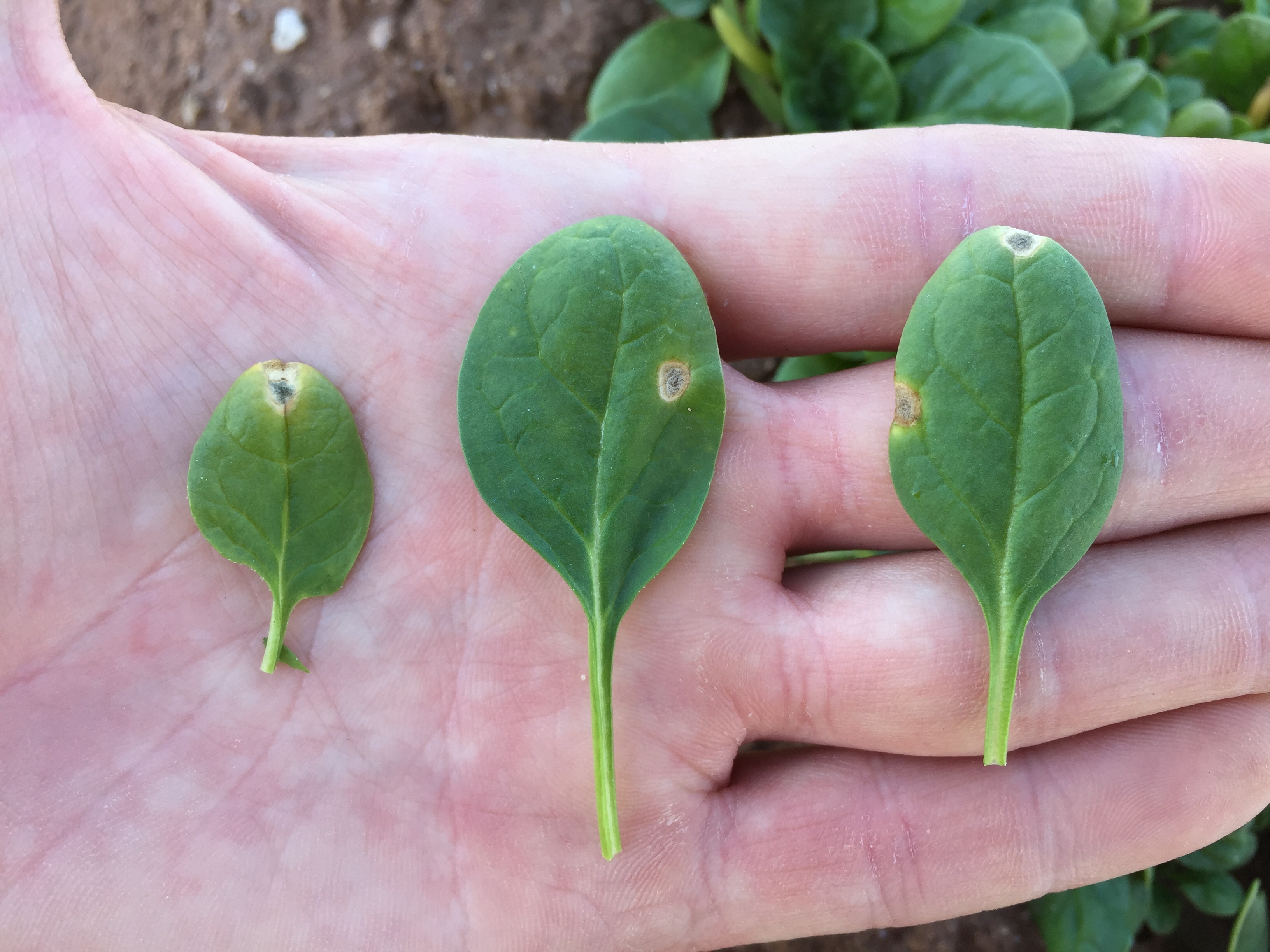
How did your time as an AgriCorps Fellow influence your career?
AgriCorps gave me perspective and fortified my grit. It changed my view on the world in many ways. I developed more empathy and an understanding on how to creatively strategize with resources I wasn’t used to having or didn’t have at all and also taught me how to effectively collaborate with others from different cultural, ethical, economic, and religious backgrounds. I have experienced success in my current job that I contribute to my time with AgriCorps. A considerable part of my current position is working with individuals that do not speak the same first language. AgriCorps put me in a similar situation such as leading a 4-H meeting with students or hosting a farmer training in my community. There was always a slight language barrier and a greater cultural one. My invaluable experience with AgriCorps and with my Ghanaian community prepared me greatly for the work that I do today.
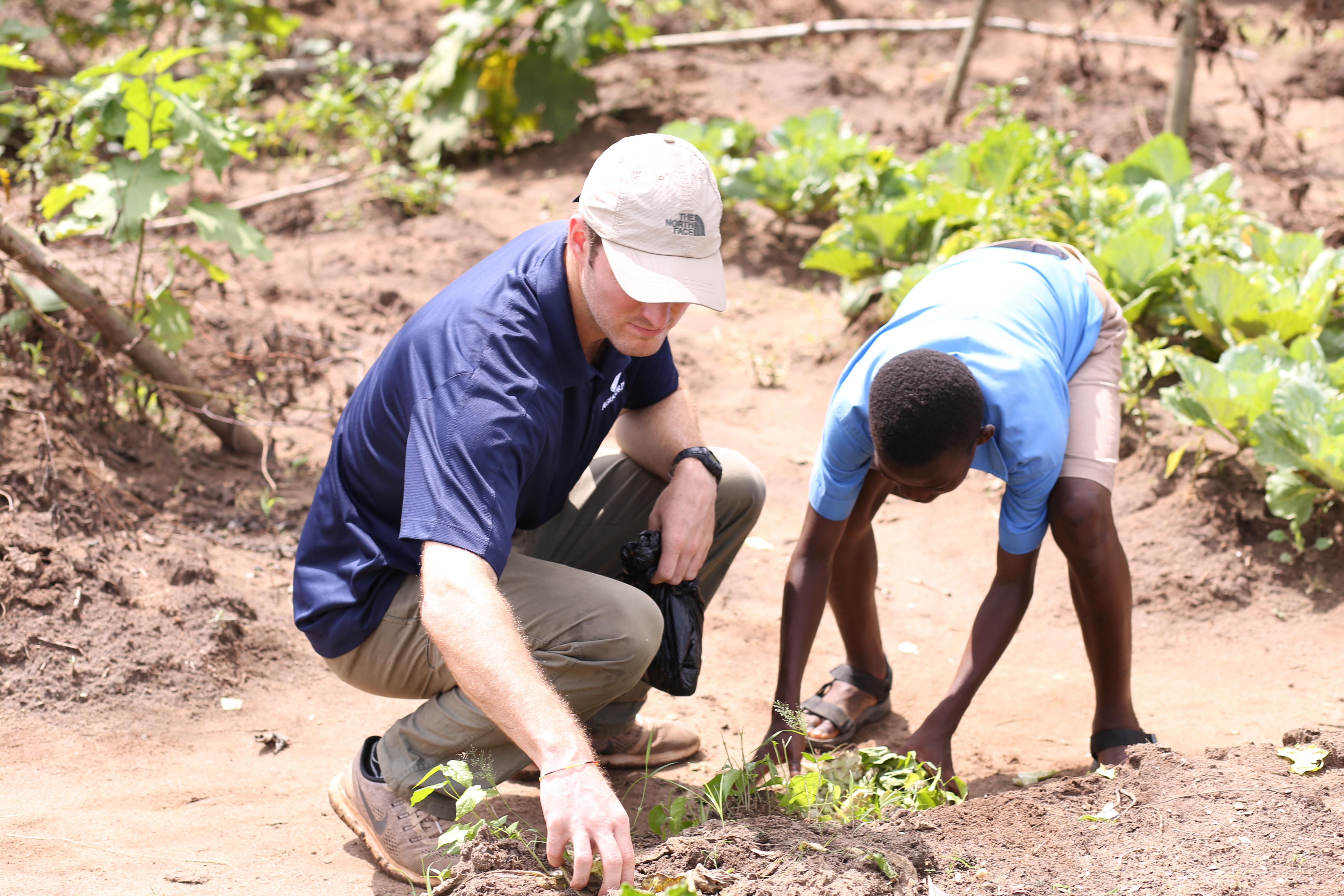
How did your time as an AgriCorps Fellow influence your opinion on international development?
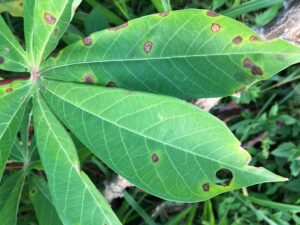 We are faced with our greatest challenge yet. These mass migrations around the world will only be exacerbated if we do not change our approach. Creating jobs through agriculture and entrepreneurship begins with school-based agriculture education. Programs like 4-H Ghana and AgriCorps that prioritize education, make a difference through LEAD workshops and supervised agriculture experiences. Students are exposed to leadership roles and given belief that they can succeed. While other NGOs focus on materials or shallow results to present to donors. Throwing money at materials such as chairs or desks does little if the student cannot leave their family’s farm because their family depends upon them for assistance. This idea of knowing what a community needs rather than understanding what the community wants is the root of these failures. A counter to that approach is getting money into the hands of people in poverty and one way is through small loan programs. When given the choice themselves, individuals will make the right decision and do what is best for their community and family.
We are faced with our greatest challenge yet. These mass migrations around the world will only be exacerbated if we do not change our approach. Creating jobs through agriculture and entrepreneurship begins with school-based agriculture education. Programs like 4-H Ghana and AgriCorps that prioritize education, make a difference through LEAD workshops and supervised agriculture experiences. Students are exposed to leadership roles and given belief that they can succeed. While other NGOs focus on materials or shallow results to present to donors. Throwing money at materials such as chairs or desks does little if the student cannot leave their family’s farm because their family depends upon them for assistance. This idea of knowing what a community needs rather than understanding what the community wants is the root of these failures. A counter to that approach is getting money into the hands of people in poverty and one way is through small loan programs. When given the choice themselves, individuals will make the right decision and do what is best for their community and family.
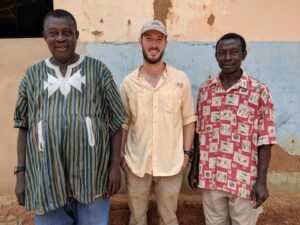 What was most memorable to you about your experiences in West Africa/AgriCorps?
What was most memorable to you about your experiences in West Africa/AgriCorps?
Working with farmers in the bush. Two individuals in particular changed my life. Joseph Teye and Samuel Teye were two brother I worked closely with throughout my time in Mensah Dawa, Ghana. They introduced me to farming in the low land tropics and my only tool was a cutlass. We spent many hours together developing their farm, from planting higher value tree crops such as cashew and cacao, to harvesting palm nuts to make oil and soup. We shared great conversation and challenged each other’s beliefs.
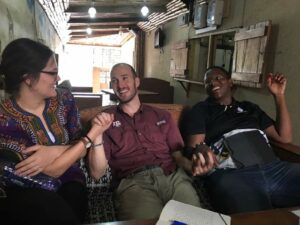 What was your favorite place you visited in Ghana?
What was your favorite place you visited in Ghana?
My favorite place I visited was Stone City. This is an area near my community in the hills above Lake Volta that the two brothers I worked closely with, showed to me. This place would be a national park if it were in the United States. I was lucky enough to visit it twice, and once was with my family who came to visit me. Being able to travel with my family around Ghana and share the Ghanaian culture with them was a fond memory and an experience that shifted their perspective of the world.
